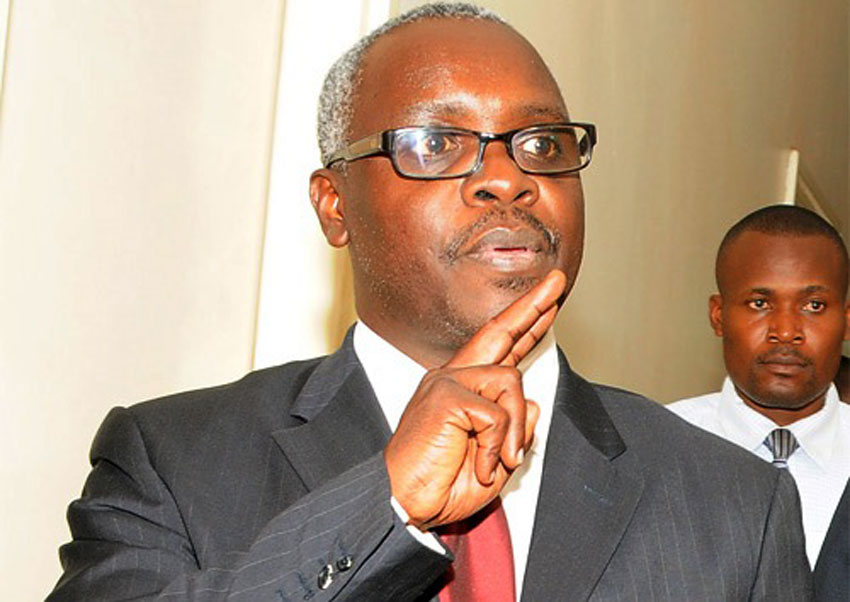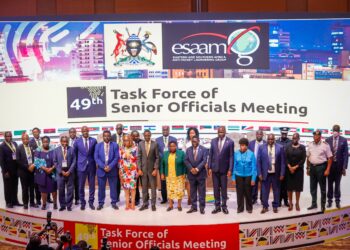The search for the next Executive Director of the Kampala Capital City Authority (KCCA) is officially underway, with the position opening the door for a new era of leadership. Given the high-profile nature of the role and its accompanying perks, many expected big names to surface as candidates. However, the inclusion of Robert Kabushenga, former CEO of Vision Group, and Richard Byarugaba, former Managing Director of the National Social Security Fund (NSSF), has sparked debate. Though both have a track record in executive leadership, some wonder if they represent the fresh perspective KCCA needs.
Who Are Robert Kabushenga and Richard Byarugaba?
Robert Kabushenga served as the CEO of Vision Group, one of Uganda’s leading media houses, where he played a pivotal role in expanding its portfolio and influence. He’s widely recognized for his media expertise and a strong understanding of the public sector. Since leaving Vision Group, Kabushenga has been outspoken on various policy issues, often reflecting on the challenges of life after his exit.
Richard Byarugaba helmed the NSSF for nearly a decade, where he oversaw substantial growth in fund size and investment returns. Known for his meticulous approach to finance, Byarugaba helped improve NSSF’s transparency and accountability, although his final years were marked by some controversy and he left the role under significant pressure.
Challenges Facing Kampala City
Kampala’s challenges are multi-faceted, and solving them requires innovative thinking and strategic leadership. Key issues include:
1. Urban Congestion: The city suffers from severe traffic congestion, with a lack of effective public transport and poorly planned road networks.
2. Waste Management: Kampala struggles to manage waste effectively, contributing to pollution and flooding during rainy seasons.
3. Infrastructure Decay: Roads are plagued by potholes, while drainage systems are often inadequate, leading to seasonal floods.
4. Unemployment and Informal Economy: Kampala’s high youth unemployment rate fuels a sprawling informal economy, creating pressure on social services and complicating urban planning.
5. Corruption and Bureaucratic Inefficiency: Corruption within the KCCA has historically slowed development and reduced public trust in city leadership.
Why Fresh Ideas Are Crucial
While Kabushenga and Byarugaba bring extensive executive experience, these challenges call for bold, fresh ideas that may not align with their traditional approaches. Their past work focused heavily on established institutions with structured systems and resources, while Kampala’s complex, layered issues require agile and perhaps unorthodox solutions. Here’s why the city might benefit more from a leader with a new perspective:
Urban Innovation: Addressing Kampala’s congestion and infrastructure needs demands a leader who is willing to adopt smart city concepts, embrace digital solutions, and consider innovative public-private partnerships that Kabushenga and Byarugaba may be less inclined to explore due to their experience in more traditional sectors.
Youth Engagement: As Kampala’s youth make up a significant portion of the population, engaging them in city initiatives and the labor force will be vital. A fresher leader could better understand youth needs and foster policies that create opportunities for them, rather than enforcing top-down approaches.
Community-Centric Development: Fresh leadership can shift KCCA’s focus to a more grassroots approach, engaging directly with communities to create tailored solutions to waste, flooding, and infrastructure needs. Kabushenga and Byarugaba, accustomed to corporate hierarchies, may struggle to adapt to such a ground-up approach.
A Call for Fresh Talent
Kabushenga and Byarugaba’s applications underscore a broader trend among top executives, where retirement doesn’t necessarily mean stepping away from high-level roles. However, this top position in Kampala calls for an individual who can bring energy, creativity, and a new perspective to tackle the city’s pressing issues. A younger leader or one with innovative urban planning experience could help push Kampala toward a more livable, efficient, and resilient future—one that doesn’t just rely on traditional governance but is geared toward a progressive, community-oriented vision.
In conclusion, Kabushenga and Byarugaba have served Uganda admirably in their respective fields, but Kampala may need someone who can approach the city’s challenges with an open mind and fresh ideas. Letting in new talent could be the key to unlocking the potential of Uganda’s capital.
Do you have a story in your community or an opinion to share with us: Email us at editorial@watchdoguganda.com













